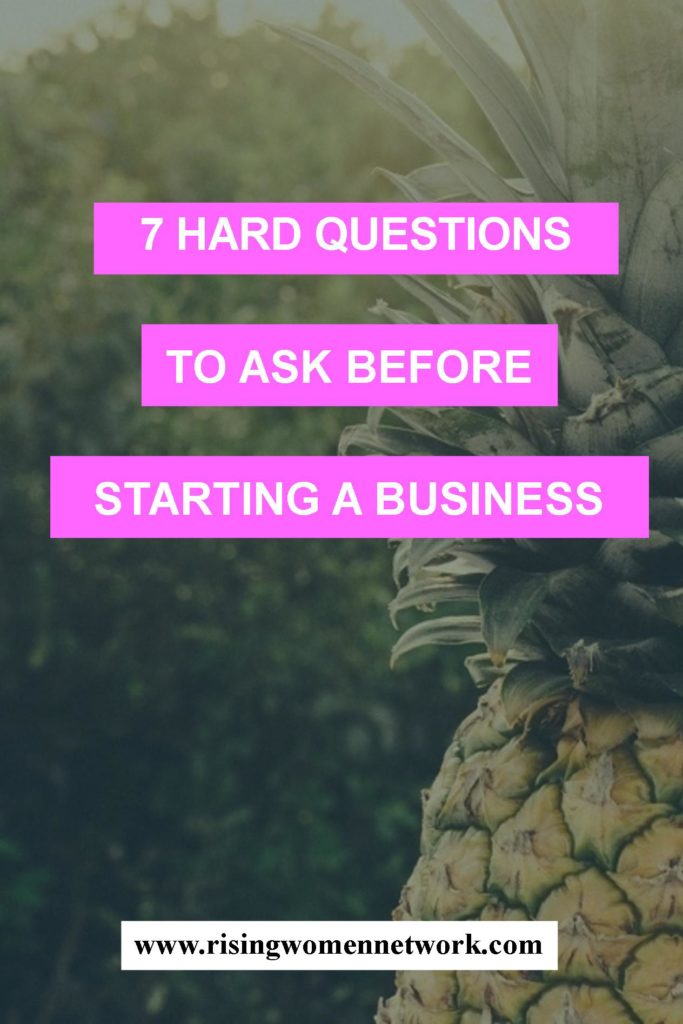Starting a business can be very difficult, especially since more than 50 percent of startups fail within their first year. In this guide to starting a business, we provide a proven method to become a business champion by positioning your company successfully and allowing your business to establish itself in the industry.
Here are The 7 Questions to Ask Before Starting A Business:
#1. Am I starting this business to make money or to do what I love?
Walt Disney famously said, “We don’t make movies to make money. We make money to make more movies.” Money is weak motivator for those destined for greatness. If you merely want to become rich, starting a business will be a shallow experience. If you’re starting a business that brings immense purpose to your life, entrepreneurship will be the beginning of a fulfilling existence.
#2. Will my business solve required, urgent, and painful problems?
At the center of every successful business is a remarkable ability to solve a customer’s problem. But not just any problem. The most successful startups solve required problems (think toilet paper over cologne), urgent problems (think insomnia over foot odor), and painful problems (think debt and collections over disorganized receipts).
#3. Am I willing to suffer for my success?
The word passion is defined as, “A willingness to suffer for something you love.” Starting a business is difficult. Is this business something you’re willing to suffer for? Are you willing to lose sleep and to live in moments of creative and mental distress? “If this business is simply what makes you happy, you’ll quit doing it when it gets tough, when it becomes too risky, when you’re ignored and mocked. But if this business is an authentic passion, you’ll be willing to continue even if it almost kills you.”
[magicactionbox id=”319″]
#4. How is my product better than the competition?
How are you going to add additional value to the customer landscape? What does your product do better, faster, cheaper, and more eloquently than others? Personally, I live by the mantra, “Make the best, for the most, for the least.” How will you create the highest quality product or service for the largest quantity of customers for the least amount of money? You blend this with a deep strategy of differentiation and you’ll have a winning business.
#5. Is there any part of my business that could compromise my family, relationships, or values?
Professional success without personal success isn’t success. Your first priority is to your health and relationships. However, all startups require a season of intensity. But a startup that turns a season into seasons can become a dangerous threat to the foundation of your life. Look deep into the future, set appropriate expectations with those around you, and build safe boundaries prior to embarking on this journey.
#6. Can I start this business on my own without a partner, loan, or investment?
87% of business partnerships fail within five years. Starting a business can be overwhelming. But trust me when I say this, “You can start a business by yourself if you seek out the right education. You don’t need a loan, you need to save. Investors seem sexy, but they are dead weight for most businesses.”
#7. How much money will I need to save prior to launching?
I instruct new entrepreneurs to have a $1,000 emergency fund and 12 months of personal expenses in savings. Quitting your job to launch a business is a delicate balance that requires patience and wisdom. If you jump ship too early, you could drown. If you wait too long, you could crash into the beach. The success of your business is a big deal. If you can build a healthy savings and walk the knife-blade of quitting too early or late, you’ll strengthen your position and limit the risk of losing everything.
In the end, ask yourself a different question. A scarier question coming from a place of retrospect, “What if I don’t?”



